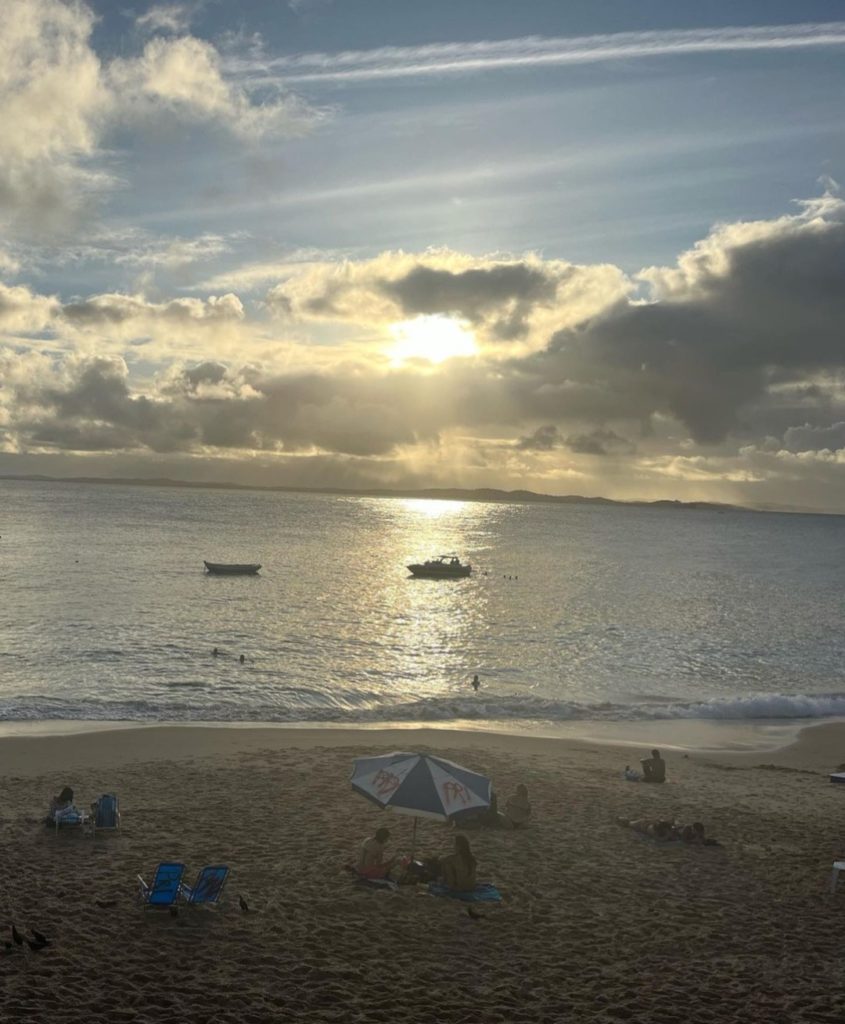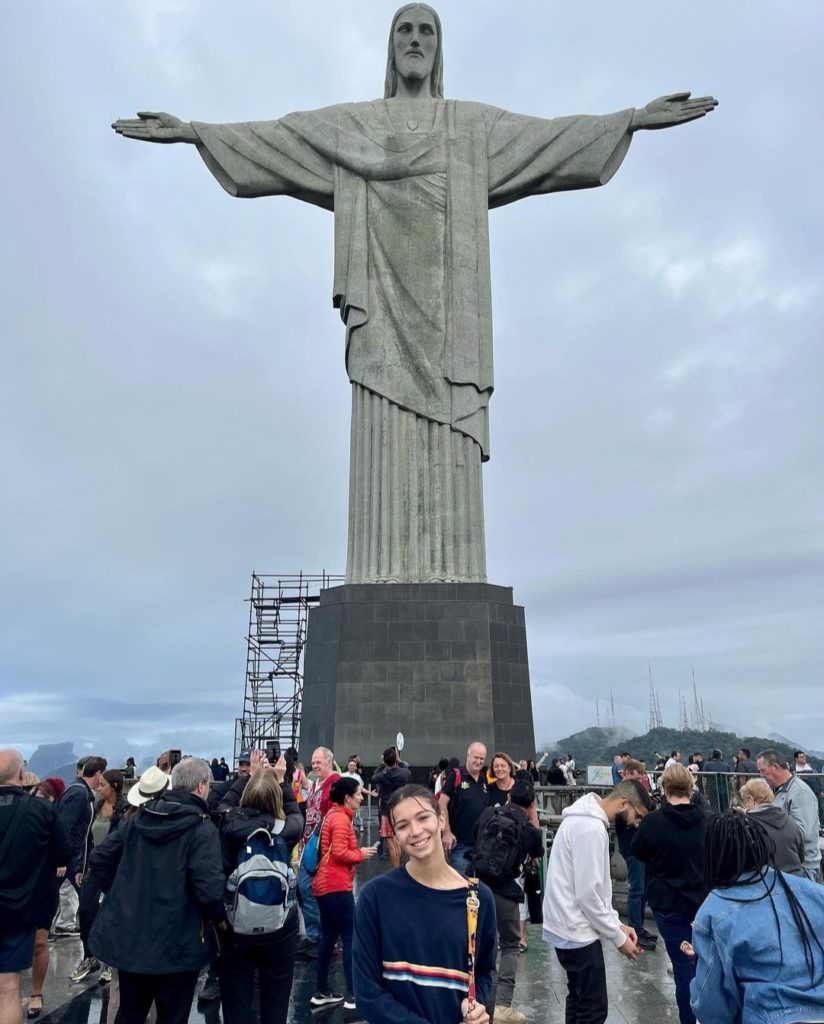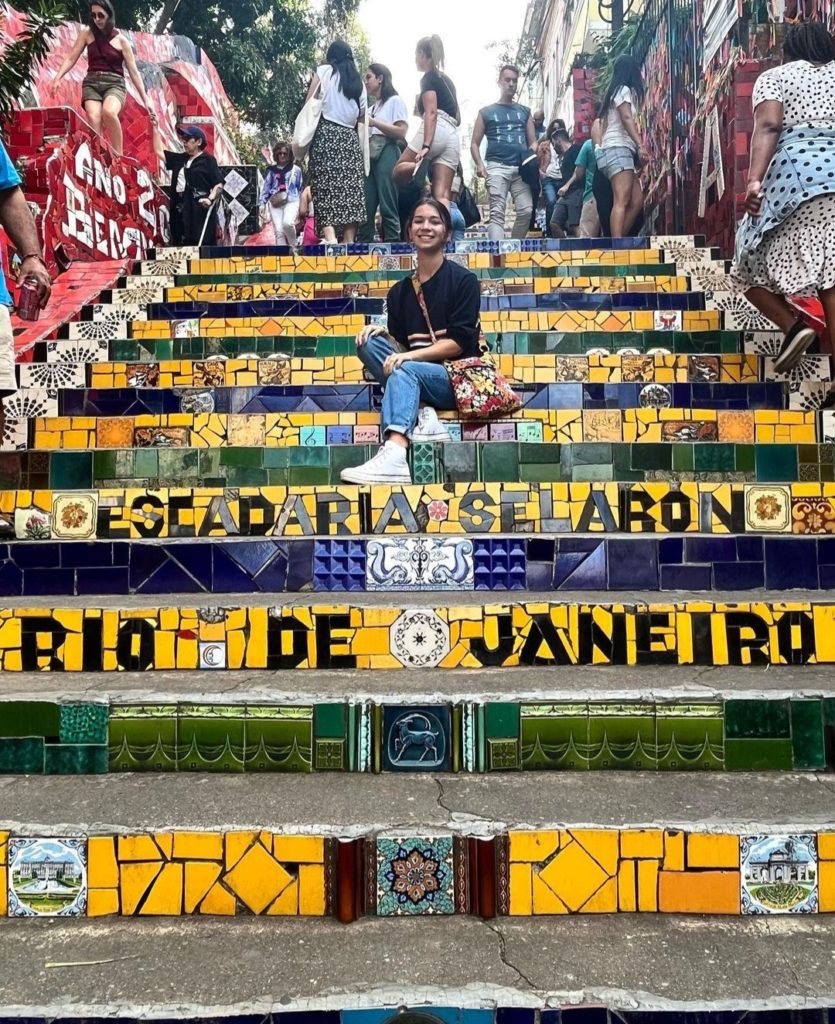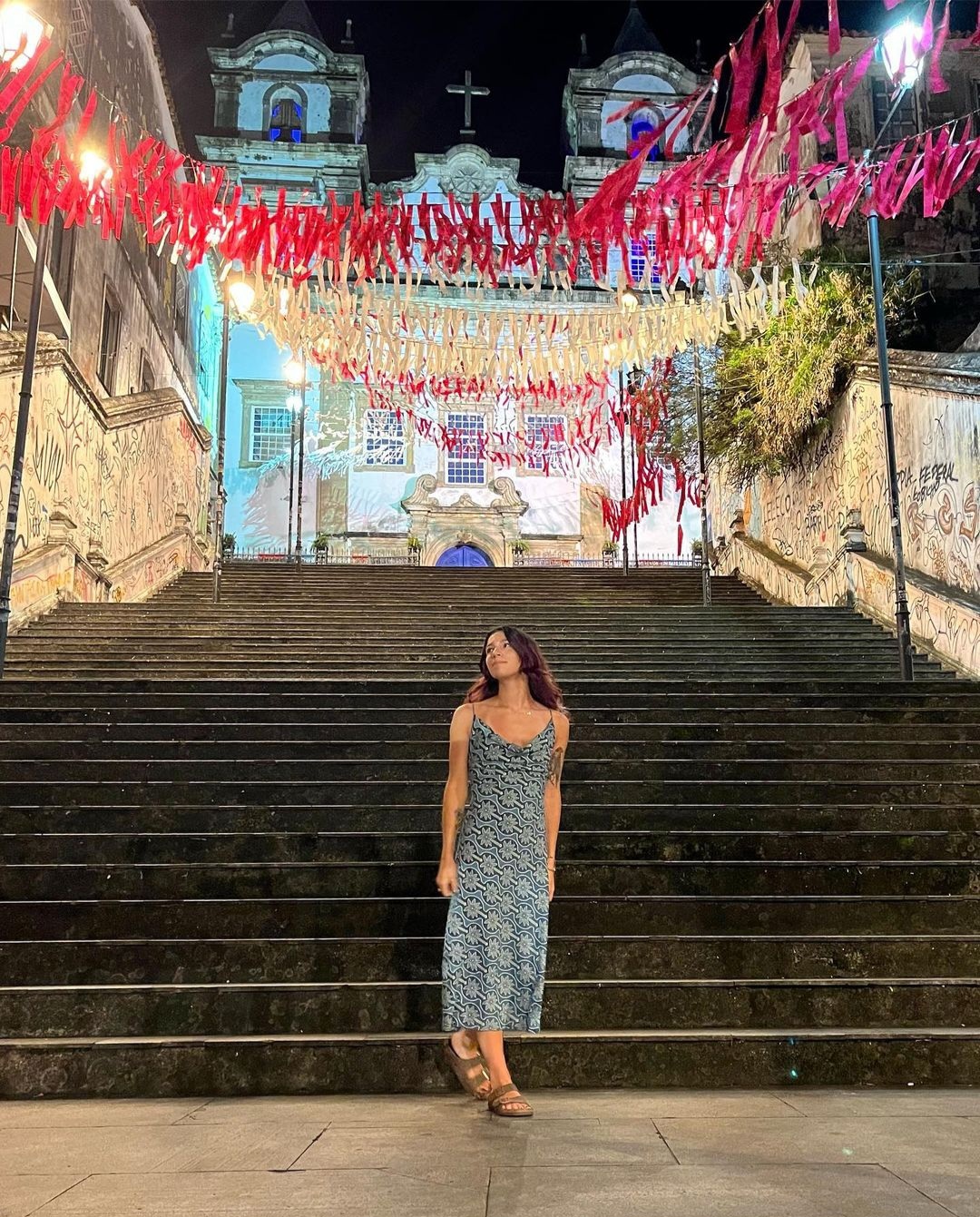In summer 2022, language learner Natalie Harmon (2024) traveled abroad for a life-changing internship in Buenos Aires, Argentina. She shared her experiences at the Vos Language School and the Asociación civil Mujer y Gobierno (Women in Government Civil Association) with MSU Languages last December. This year, we had the pleasure of speaking with her again about her study abroad in Brazil during summer 2023.

While in Argentina, Natalie put both her Spanish major and diplomat skills to the test working alongside native Spanish speakers to research the effects of the pandemic in Buenos Aires and support working-class women who had been impacted by gender-based disparities. This summer, Natalie had the opportunity to enhance her knowledge of Latin American culture and society through a six-week class sponsored by James Madison College. The program entitled Politics, Culture, and Society in Brazil “examines the domestic and international politics of Brazil” and discusses a variety of topics from economics to environmental policymaking. The program consists of one intensive eight-credit class that is open to JMC majors.

The instruction was led in English, which means that speaking Portuguese is not a requirement for this program. Still, Natalie was thrust into an immersive language experience from the moment she landed in Sao Paulo for her connecting flight to Salvador. Unfortunately, the line at customs was so long that she missed her connection, so she had to put her Portuguese skills to use right away to complete the remainder of her journey.
Incidentally, Natalie was the only student in her cohort who spoke Portuguese, a decided change from her immersive experience in Argentina. This resulted in taking communication responsibilities for the group, such as communicating with hotel workers and restaurant staff. She also taught her fellow students some of the conversational basics, and by the end of the trip, was watching her friends order their own meals and greet locals in Portuguese. This was a great source of joy for Natalie and solidified her career interests of being a language teacher.

Classes were hosted at the Universidade Federal da Bahia for about four hours a day. Each week, Natalie and her classmates learned a new topic from a new professor, including themes ranging from the Brazilian education system, the basics of the country’s history, and how race is perceived in Brazil. The overall course has a specific focus on the appropriation of Afro-Brazilian culture in music, dance, and other cultural elements as they relate to Brazilian nationalism and state structures.
In addition to the lectures, the cohort took field trips to various sites related to the weekly topics, such as a public secondary school or a collaborative workspace. Natalie remarked how unique of an experience it was to visit parts of the city that she otherwise would not have seen as a tourist. She also said that the school was her favorite excursion. That week, the course was focused on the intersection of race and education, and the trip offered a tangible connection to what she had learned. She was able to speak with the principal and the students, all while learning about the school’s history and the culture of public schools in Brazil as compared to the United States.
Of course, Natalie had plenty of time to explore the city on her own and with friends. She took a weekend trip to a beach town an hour north of Salvador called Praia do Forte, splitting an AirBnB with friends. She appreciated the chance to get out of the city and see what else Brazil had to offer. She also took a capoeira class with friends, an Afro-Brazilian martial art that involves music and spirituality. She enjoyed plates of shrimp and bowls of moqueca, a fish, tomato, and coconut milk stew served over cilantro rice. She also tried feijoada, another Afro-Brazilian stew that uses leftover cuts of pork and black beans, served with rice or fried cassava flour.

At the end of the program, Natalie decided to stay a little while longer. On her way to Recife, a city in northeastern Brazil, she spent a weekend in Rio de Janeiro, staying in hostels and exploring all the sights. She saw Christ the Redeemer and Escadaria Selaron, a mosaic staircase and popular tourist attraction. Someday she plans to go back and spend more time in the city. In Recife, Natalie spent time with a longtime friend who was an exchange student in her hometown of Fenton, Michigan. The two hadn’t seen each other in years and were thrilled over the opportunity to bond over their shared study abroad experiences. She marveled at the regional accents and the throes of street performers dancing in the frevo style, a regional dance specific to Recife that draws on the movements of capoeira and features small, colorful umbrellas.




To Natalie, everything about this new experience abroad was different from her last. In Argentina, she was practically alone, while in Brazil, she spent much of her time with other students. She learned how to navigate large group dynamics in brand-new situations, a skill that will serve her in her future career. After graduation, Natalie hopes to travel to Mexico with the Fulbright Program as an English teaching assistant. Eventually, she plans to attend graduate school to obtain her teaching certificate and become an English and Spanish educator. Natalie represents a beacon of possibility for the future of language education, and she will undoubtedly bring her passion for culture and life experiences into her classrooms one day.

